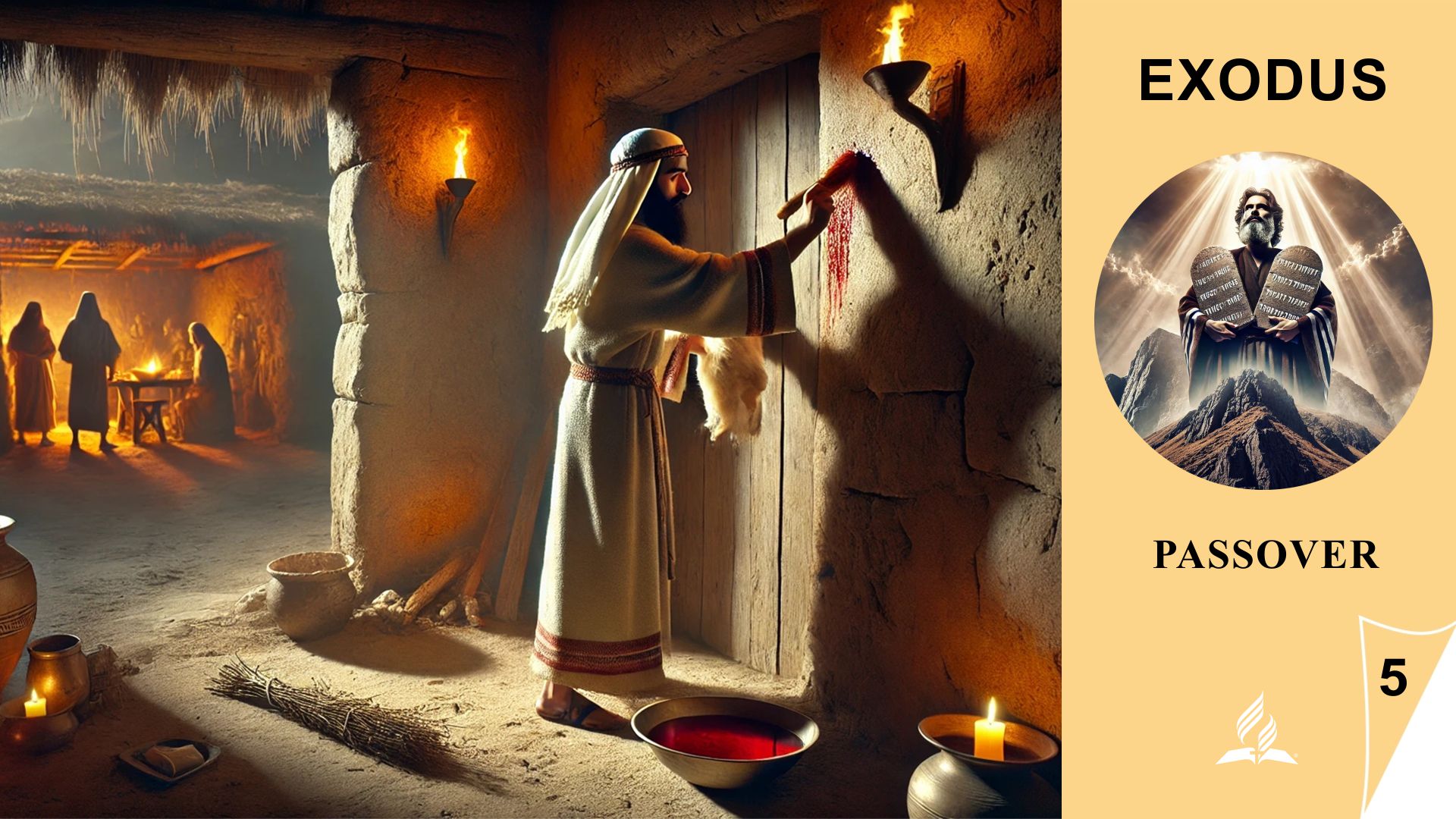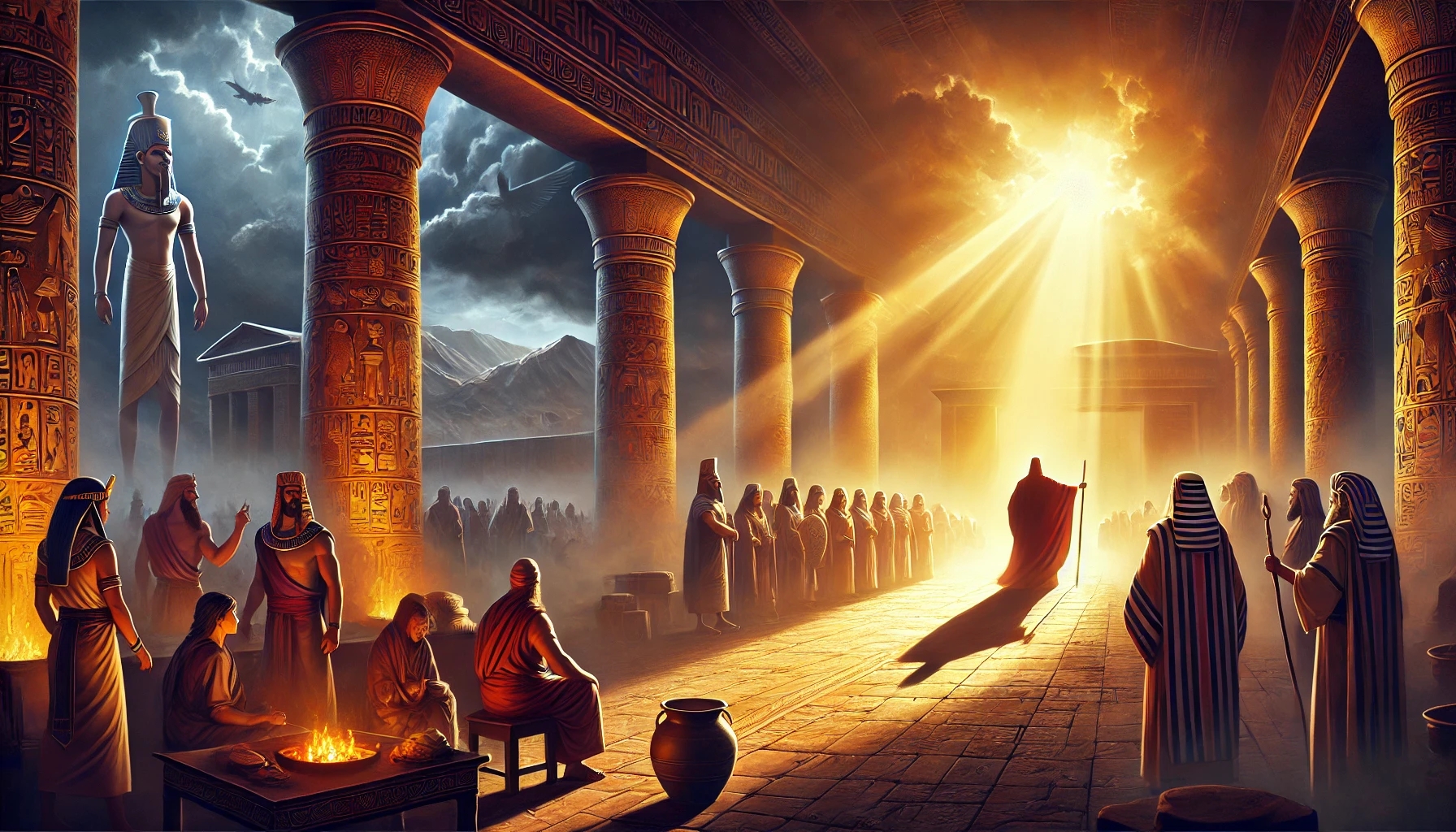 July 28, 2025
July 28, 2025
 Joseph – Faith That Endures
Joseph – Faith That Endures
Devotions from the Life of a Dreamer with Character
 3. Betrayed, But Not Abandoned
3. Betrayed, But Not Abandoned
God stays – even when others let you fall
 Introduction
Introduction
Betrayal – it’s more than just a disagreement.
It’s when closeness wounds.
When trust is misused.
When those you opened your heart to suddenly push you away.
In Joseph’s case, the betrayal didn’t come from enemies.
It came from his own brothers.
The ones he grew up with.
Who spoke his language.
Who were his family.
And yet:
God did not leave him.
 Devotion
Devotion
 Genesis 37:28:
Genesis 37:28:
“Then Midianite traders passed by; and they drew Joseph up and lifted him out of the pit, and sold him to the Ishmaelites for twenty shekels of silver…”
A moment that changed everything.
Joseph had hoped, believed, dreamed –
and now he was sold.
Given away.
For money.
Not because God had given up on him.
But because people used their free will against him.
 Maybe you know this feeling:
Maybe you know this feeling:
You trusted someone –
and were disappointed.
You opened up –
and were hurt.
You were left behind –
especially by those you thought were the safest.
But: God has not left you.
Even when people walk away –
God stays.
 Joseph was thrown into a pit,
Joseph was thrown into a pit,
then became a slave,
later a prisoner.
But never – not even once – was he truly alone.
Because God was with him.
Quiet. Faithful. Stronger than any betrayal.
 Genesis 39:2:
Genesis 39:2:
“The Lord was with Joseph, so he became a successful man…”
 Story – When Miriam Learned to Choose God’s Nearness Over Human Approval
Story – When Miriam Learned to Choose God’s Nearness Over Human Approval
Miriam was 22 years old when she started serving in her church’s worship team.
She had a deep love for music, but an even deeper love for God.
For her, worship was never just singing –
it was prayer, encounter, and calling.
She quickly connected with the team, especially with an older woman named Jana.
Jana became like a spiritual sister to her.
They prayed together, shared dreams, and for the first time, Miriam felt truly “seen.”
But over time, things started to change.
Miriam sensed that God was leading her in a new direction:
She felt called not only to lead worship, but to share short messages during services.
At first, she didn’t dare to say anything.
But when she finally shared her heart with the team – openly, gently, with trembling –
Jana responded in a way she never expected.
“Don’t think you’re something special.”
“You’re not ready yet.”
“Maybe you’re just imagining things.”
At first, Miriam thought it was a misunderstanding.
But it got worse.
Jana began pulling away – and even influenced others against Miriam.
Whispers. Distrust. Distance.
Within just a few weeks, closeness had turned into a wall.
Miriam was pushed out of the worship team.
No official reason – but plenty of unspoken judgments.
She was deeply hurt.
Not just by losing her place of service –
but by the betrayal of trust.
By the betrayal itself.
She cried for days.
She prayed. Asked God:
“Why did you allow this? How can people who know You act this way?”
Then something unexpected happened.
One quiet hour, alone with her Bible, she read Psalm 27:10:
“Though my father and mother forsake me, the Lord will receive me.”
This verse hit her right in the heart.
Not because her parents had left her –
but because she understood: Even when people let you go – God takes you in.
She began to realize:
What felt like being pushed out…
was actually a step into something wider.
A few months later, a pastor from another church asked her –
if she’d consider leading a Bible study group.
She hesitated – but finally said yes.
Today, years later, Miriam leads a group for young women.
She speaks openly about calling, pain, and healing.
And sometimes, even about betrayal.
Jana?
She never apologized.
But Miriam forgave her.
Today, Miriam says:
“It hurt. But I grew because of it.
I came to know God more deeply – especially when I was most hurt by people.”
 What We Can Learn From This
What We Can Learn From This
-
Betrayal hurts – especially when it comes from those closest to us
-
But even if others push us out – God opens new spaces
-
Not every break is an end – sometimes it’s a beginning
-
God’s nearness can reach even the deepest wounds – and bring healing
 Reflection – What Does This Mean for You?
Reflection – What Does This Mean for You?
 Have you ever been disappointed or betrayed by someone you trusted?
Have you ever been disappointed or betrayed by someone you trusted? Did you feel alone or deeply hurt in that moment?
Did you feel alone or deeply hurt in that moment? Can you – like Joseph – still believe that God is with you?
Can you – like Joseph – still believe that God is with you?
 Action Steps for Today
Action Steps for Today
 Tell God about your pain – He already knows it
Tell God about your pain – He already knows it Ask Him to heal and strengthen you from within
Ask Him to heal and strengthen you from within Don’t let betrayal destroy your faith
Don’t let betrayal destroy your faith Read Genesis 39 – and notice how often it says: “God was with Joseph”
Read Genesis 39 – and notice how often it says: “God was with Joseph”
 “What people take from you – God can restore.”
“What people take from you – God can restore.”
 Prayer
Prayer
Lord,
You know what betrayal feels like.
Even You were abandoned by Your friends.
So You understand my pain.
Today I bring You what’s broken in me:
my trust, my disappointment, my wounded heart.
Heal what I cannot heal on my own.
Don’t let me become bitter, but set me free.
Help me trust You again –
even if I can’t fully trust people.
Stay with me – just like You stayed with Joseph.
Make me strong through Your faithfulness.
Amen.
 Today’s Takeaway
Today’s Takeaway
“People may betray you –
but God will never leave you.”
 Blessing to End the Day
Blessing to End the Day
May the Lord bless you with a heart
that doesn’t give up, even in pain.
With a faith
that’s carried not by people, but by God Himself.
With eyes
that don’t dwell on what’s been lost –
but on what God still wants to give.
May God bless you,
when others no longer hold you –
because He does.
Today. Tomorrow. Forever.
With a faith
that’s carried not by people, but by God Himself.
With eyes
that don’t dwell on what’s been lost –
but on what God still wants to give.
May God bless you,
when others no longer hold you –
because He does.
Today. Tomorrow. Forever.

 Introduction
Introduction
 Lesson 5: Passover
Lesson 5: Passover 5.1 One More Plague
5.1 One More Plague The Final Warning – God’s Patience Before Judgment
The Final Warning – God’s Patience Before Judgment Bible Study: Exodus 11:1–10
Bible Study: Exodus 11:1–10 1. Historical and Literary Context
1. Historical and Literary Context Question 1: Read Exodus 11:1–10. What warning did God give before executing judgment on Egypt?
Question 1: Read Exodus 11:1–10. What warning did God give before executing judgment on Egypt? Application for Daily Life
Application for Daily Life Conclusion
Conclusion Thought of the Day
Thought of the Day Illustration – “The Last Night in Santa Florencia”
Illustration – “The Last Night in Santa Florencia” Message of the Story
Message of the Story July 27, 2025
July 27, 2025 DAILY BIBLE READING
DAILY BIBLE READING Leviticus 12 – Cleansing and Restoration
Leviticus 12 – Cleansing and Restoration God’s care in the time after childbirth
God’s care in the time after childbirth Bible Text – Leviticus 12 (KJV)
Bible Text – Leviticus 12 (KJV) Introduction
Introduction Commentary
Commentary 1. Physical and spiritual purification (vv. 1–5)
1. Physical and spiritual purification (vv. 1–5) Summary
Summary Message for Us Today
Message for Us Today Reflection Questions
Reflection Questions
 July 27 – August 2, 2025
July 27 – August 2, 2025 1. Brokenness: Loneliness and Loss (The Beginning of the Journey)
1. Brokenness: Loneliness and Loss (The Beginning of the Journey) Reflection Question
Reflection Question July 27, 2025
July 27, 2025 Joseph – Faith that Endures
Joseph – Faith that Endures 2. When Your Family Doesn’t Understand You
2. When Your Family Doesn’t Understand You Introduction
Introduction Devotional
Devotional Genesis 37:8
Genesis 37:8 This is something many who carry a spiritual calling will recognize:
This is something many who carry a spiritual calling will recognize: But here’s the truth: God didn’t give up on the dream.
But here’s the truth: God didn’t give up on the dream. And this truth applies to your life as well:
And this truth applies to your life as well: Story – When Sara Dared to Step Up
Story – When Sara Dared to Step Up Reflection – What Does This Mean for You?
Reflection – What Does This Mean for You? Have your dreams or your faith ever been dismissed by your family or friends?
Have your dreams or your faith ever been dismissed by your family or friends? Have you felt alone or misunderstood because of it?
Have you felt alone or misunderstood because of it? Are you willing – like Joseph – to hold on to God’s calling anyway?
Are you willing – like Joseph – to hold on to God’s calling anyway? Forgive those who don’t understand you – especially if it’s your family
Forgive those who don’t understand you – especially if it’s your family Prayer
Prayer Takeaway for Today
Takeaway for Today Blessing for the End
Blessing for the End
